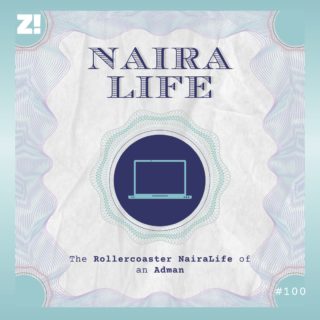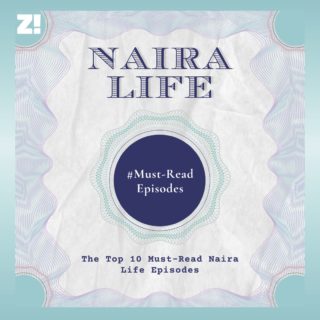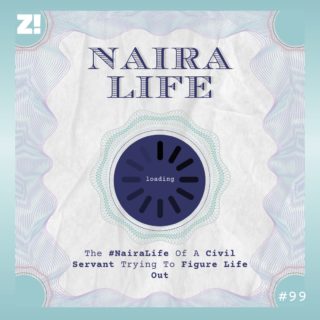Every week, Zikoko seeks to understand how people move the Naira in and out of their lives. Some stories will be struggle-ish, others will be bougie. All the time, it’ll be revealing.
The subject of this week’s story is a Financial Consultant whose journey starts on Wall Street and currently sits in Lagos. He’s in his mid-30s, and would rather stay home and read a book than go to a party.
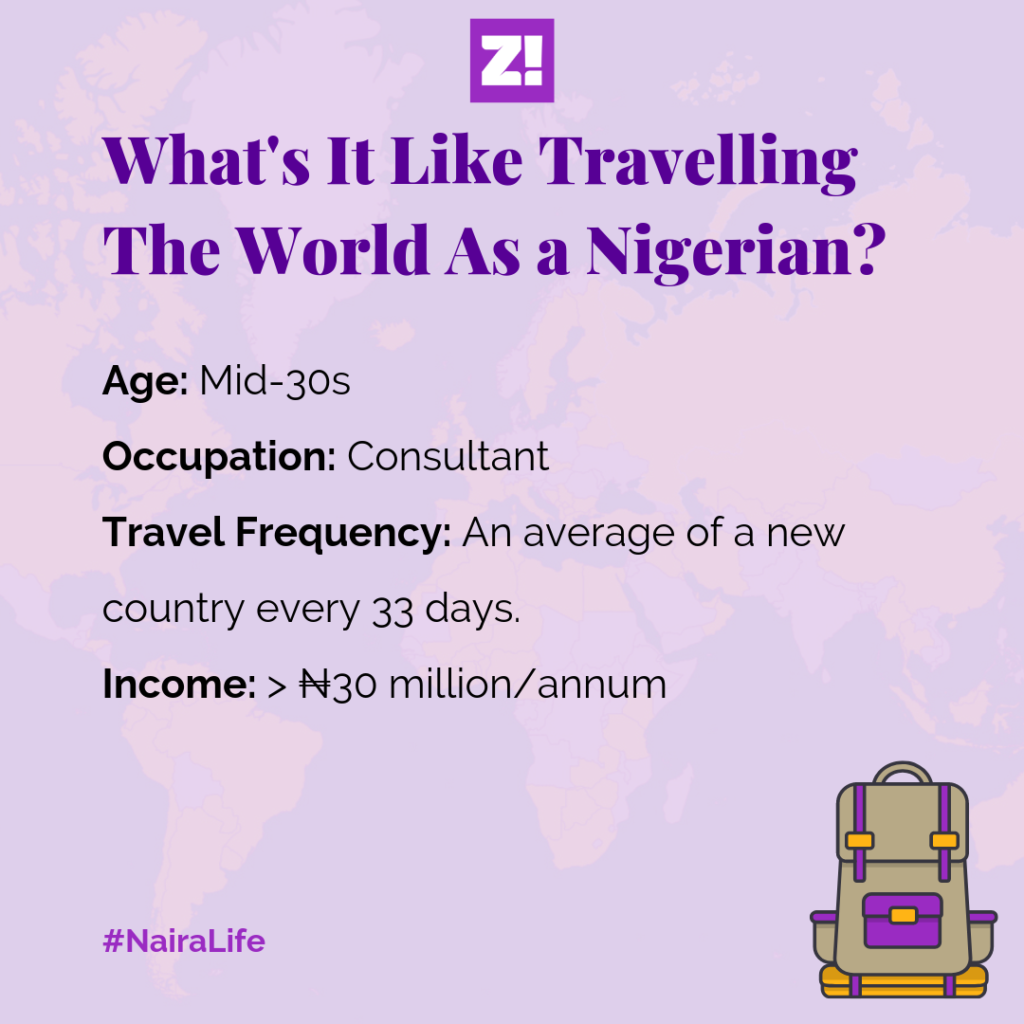
I’ve never met a Nigerian who’s more travelled than you, for starters. When did this all start for you?
I took the first step in 2010; a deliberate international trip to the Dominican Republic. It was the year I left university and realised there’s a whole world out there that I needed to see.
But the hunger for the road had always been there. I’ve always been curious. I remember when I discovered maps in my dad’s library as a child. It was super exciting.
People get excited about comic books but with me, it’s maps. They capture my attention even now. I remember being in an interview and there was a map behind the interviewer, and I had to angle myself because I was quite distracted.
It became clear that I was going to be somebody who was not afraid to explore when I wandered off with a sibling and cousin and then got lost.
Back to that first trip, what was that like?
The experience of stepping into a culture I didn’t know was overpowering. It kicked off from there. So from that point on average since 2010, I’ve entered a new country every 33 days.
Woah. How many countries have you been to?
110.
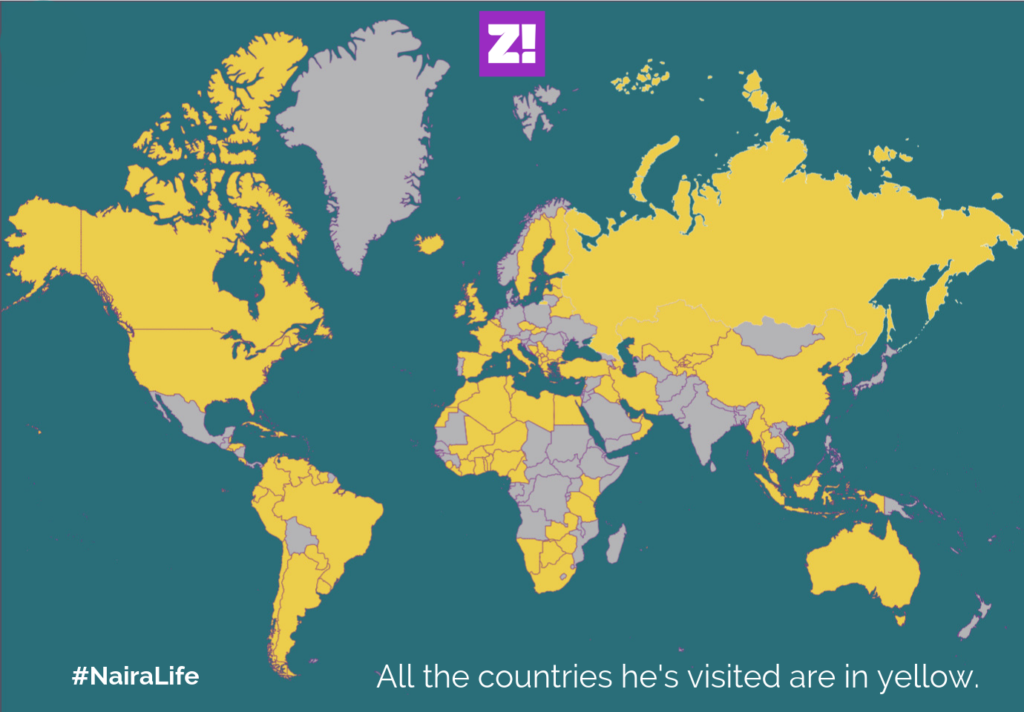
That’s a lot of countries and a lot of money. Let’s start with the money part. How about a brief summary of your income history.
The first time I really made money was 2004. I was in my freshman year in university in the United States. I was financing myself for the most past. But because I didn’t have a work-study authorisation – what lets international students work in the US – I was not able to work on or off-campus.
Then a professor pitied me and said, “You’re coming to work as a lab monitor, let’s get it sorted right away.” And so I started off earning. I can’t forget the amount – $5.05 per hour for 12 hours a week. A lifesaver for $60 – 70 a week.
I’d done internships and so after my university, I worked at some of the biggest investment banks in the world, starting at $70,000 a year and then going up about $5000 every year.
Then I left for my MBA in 2010. Finished that in 2012.
Interesting. And after your MBA?
Another financial services firm. I was getting paid $130,000 a year. Then I took time off work and travelled. I travelled from January 2017 till July of that year. I started working in consulting in July, and I’ve been in consulting for about two years now.
Wait, wait, let’s not speed past six months of constant travel.
That was mostly funded by savings from previous years of work. I was also paid a relocation allowance by the consulting gig I was getting, so I didn’t have to draw too deeply on savings. Travelling at a non-rushed pace enabled me to book competitively priced flights and there were a number of destinations I stayed in for free.
And most of these – probably 80% – were self-catering so I could prepare my own meals.
How many countries did you go in those months?
…
…
21. Man, I never counted before. That’s a lot.
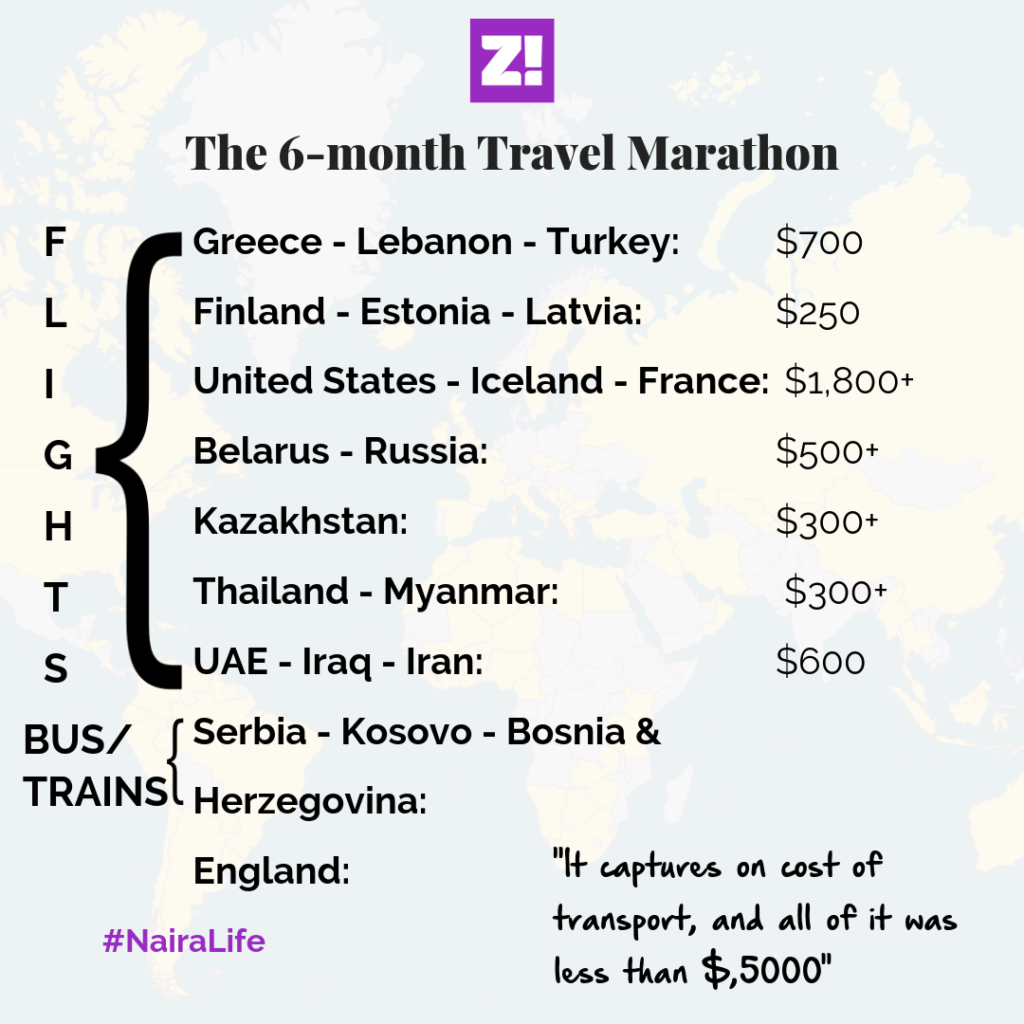
You still have the numbers. That is wild. How much did all of this cost?
If you looked at something every day for weeks, you would probably have the numbers too. It cost about $11,000 – no I think that’s a lot. Let’s say 10. Flights took about $5,000. And the key is to book with flexibility. To embrace the idea of booking flights in the middle of the week, for example. It was a question of checking my routes daily and waiting till something sensible popped up.
How do you travel so frugally?
First of all, I stopped travelling on a credit card – I realised it’s just not a responsible thing to do. So I only finance travel from my current income – I put away 8% of my income. Also, I’m very deliberate. I always have a cap on how much a flight should cost, based on distance and how long I’m going to be spending there. For example, I’m planning a trip, and I don’t want to spend more than $40 on a room – that’s about 14,000.
I also break my travel expenses into buckets; transport (flights, rail, road), accommodation, essential and non-essential services.
On accommodation, for example, I won’t go more than $40 for a rough-it holiday. For anything else, I won’t go more than $70 a night.
Essential services are things like a guide for a particular outing. You definitely need a guide. Non-essential services – you don’t want to get too crazy. So you just set yourself a budget for mostly food.
Wikipedia. Wikihow. Wikieverything.
What?
You, hahaha.
Oh, I just need to make sure I know what I’m seeing, by planning. I also want to know what latitude I’m at, the time zone, and in what direction I’m travelling. Where’s the river? To go to a place without having that pre-orientation, to me is almost illegal. I always want to look at a map, then get the context of it and all of that.
Okay, let’s get off the road a little. July 2017, settling back after 6 months on the road.
Well, I was resuming to the job in Nigeria – we get paid in naira – so we started off at about ₦29,000,000, which has now gone up to the mid-thirties.
Let’s break down what your expenses generally look like?
I’m actually not a big leisure spender even when I’m not travelling. I go to three places. Two nice restaurants. And maybe somebody is having a house party and I go. But typically, I don’t accept most invitations. I mean, I don’t tell them no. I’ll just say, “Oh, how thoughtful of you.” But if there’s a close relationship, then, of course, I’ll go. But for the most part, I’ll just stay home and read a book or watch a documentary.
I don’t eat out a lot, I don’t go out a lot, I don’t drink alcohol, I haven’t been to a club in years, so what I tend to spend my money on, gosh –
What?
I’ll tell you, a large expenditure – which is a bit sad actually – especially in the last two years is on medical because I’ve been having a sort of escalating medical challenge. I spend ₦9,000 on Uber every week.
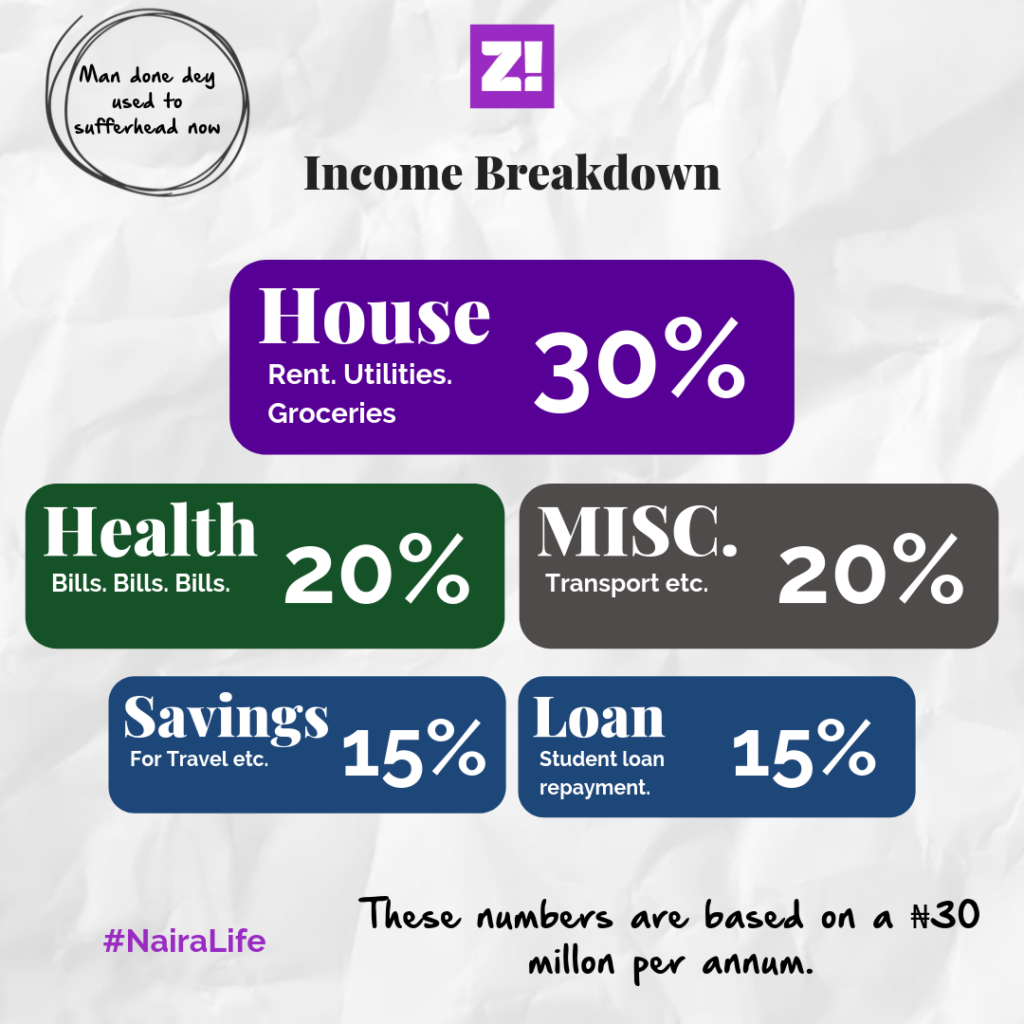
I find it interesting that you think about money in percentiles, and in terms of annual income.
When you work in financial consulting, it forces you to be this person.
What’s the most annoying miscellaneous you’ve had to pay for?
Well, it wouldn’t be a recurring one, because I’d have cut it out. Sometimes, something unexpected happens, but it’s unavoidable. Like “oh there’s a leak in one of your pipes, so we need you to sort it out.”
That’s inconvenient. That’s annoying.
To be honest, my miscellaneous expenses aren’t many. And the reason is that I’m quite deliberate in the way I plan out my life, and obviously that has cost implications.
For example, because I don’t drink or drive, I’m not going to get into that accident that will cost me x amount of money to fix. Or to pay the person whose car I crashed.
That’s an interesting way to look at it.
Oh, I didn’t mention, I got kidnapped by terrorists once.
Wait a minute.
In 2017. Lebanon.
Woah. Because you’ve said Lebanon, in my head I’m thinking Hezbollah?
Before I answer, let me rephrase it. When I say, “I got kidnapped by terrorists,” I’m being lazy with the choice of words. I got abducted by a group whose military arm certain states have designated as a terrorist group – Hezbollah.
Fair enough.
I got kidnapped, but I wasn’t held overnight – only about 7 hours. They thought I was spying in a Hezbollah stronghold. They don’t get a lot of travellers there. They were holding me in a compound, so I tried to fake an asthma attack to get released. And then apparently, I did good acting, or maybe they were just humouring me.
They asked me to write my medication. I was hoping they wouldn’t find it because of the part of Lebanon I was in. That way, they’d let me go.
Did they find it?
Yes, they did, and they were really happy, hugging me. The area was Haret Hreik. I never really learned how to pronounce it.
So, I’d say that wasn’t a picnic – they did give me tea though.
Now that we’re talking about being a stranger, what are the most common reactions when people in other countries find out you’re Nigerian?
60% surprise. 20% disbelief (extreme surprise). The other 20% have no reaction.
What are some of the weirdest things you’ve heard anyone say?
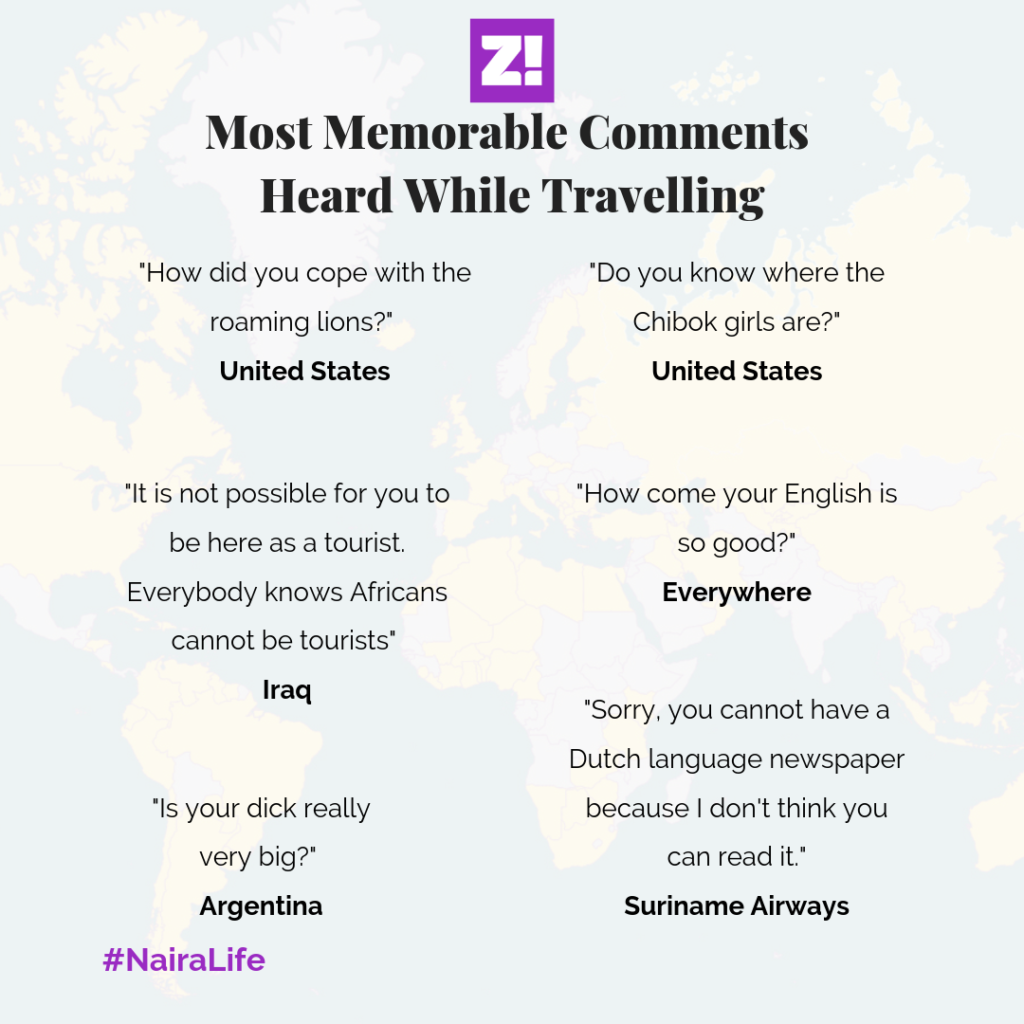
Hahaha. But seriously though, travelling with money is one thing, passports are a completely different sport.
By an interesting strike of fortune, I have three passports: British, American, and Nigerian. And that makes things a lot easier. I can say that because before I got either my US or UK passport, I was travelling with my Nigerian passport. And I’ve travelled about 59 countries on that passport.
But the ease I had with the Nigerian passport is nowhere close to the ease I have today.
So passports aren’t a hack, it’s just a matter of circumstances.
So what about travel in Nigeria?
All these nice frugal hacks don’t work in Nigeria for a few reasons. You don’t have reliable connections to the airport. Also, there’s not enough flexible work schedule for that to work.
Also, Nigerian bosses generally aren’t big with the idea of letting you break up your annual leave – two days here, three days there.
For people that want to incorporate it into a busy work schedule, it’s expensive. A trip from Lagos to Abuja, for example, can cost up ₦40,000 return.
When you look at Western Europe for example, you’re travelling for a fraction of that. Then take away the financial aspect, those places are not really as accessible. If you’re not going to a major city, getting a flight to another part of the country is harder.
Accommodation is reasonable, you can get good places for ₦10,000 if you know where to look.
I’m curious about something. How do people everywhere think about money, compared to Nigeria?
It’s different things. For example, religion plays a significant role in how Nigerians think about money and what they want to invest in.
In the West, not so much. Religion plays a far less part than ethical considerations – it’s just a different set of considerations. For example, people would choose not to buy from a place because they don’t support gay rights. It just shows how advanced these societies have climbed in Maslow’s Pyramid.
Obviously, when you’re still worried about where your next meal is coming from, you’re not concerned that your meal is coming from putting money in the pockets of tobacco producers that cause lung cancer blah blah.
Also, people in developed countries generally have an extremely goal-oriented attitude towards money.
Okay, let’s get off the road again and come back to you. What are your finances looking like in, say 5 years?
I have no idea. It could be slightly more, or slightly less than what I’m earning. In five years, I could say aspirationally, I would want to be at about 140% of where I am today.
One of the things about me – which I don’t see as a plus even though some people disagree – is that it’s not in my nature to assess them from a monetary perspective. As long as I’m scaling a minimum hurdle, I’ll always go with the one that is convenient for me. I do like money – I value it a lot – but I’m not excessively motivated by it.
What about investments?
Low risk. It’s the first thing I look at. I’m not going to do something crazy, like buying Facebook stock.
So what do I do? I buy index funds from developed countries. And then Treasury bills in Nigeria.
Random, but what’s something you want but can’t afford?
A global on-demand personal and domestic assistant. No matter where I am in the world, I just want like a genie in the bottle. Somebody who’s travelling with me and just making my life super easy.
I would say that perhaps, my aspirations are too unrealistic, but it might probably cost $150,000 a year, all things taken into consideration.
Let’s talk about financial satisfaction. 0-10.
Between 6 and 7. The gap is that I’m spending too much money on health. And that’s preventing me from saving. If it weren’t for that, I would probably say 9.
Last question: between your first trip and now, what has changed?
I suppose it’s no longer as magical as it used to be. Every country is still magical. Sometimes the magic is just not as pronounced. But it’s still magical. I remember how I felt back in 2010. And it could be because of the pressures of work, more responsibilities, more things on your mind you can’t actually let yourself go as completely as before.
Well, the magic is still strong with us at Zikoko. We’re about to hit the road, and we’ll be travelling across West Africa, looking for amazing stories about food, culture, language and of course people. We’re calling it #JollofRoad
We’ll be sharing those stories every day, and if you show up at 12 pm every day from the 22nd of September, you’ll find a new story.
Promise.
*This story has been edited and condensed to protect the identity of the subject.


